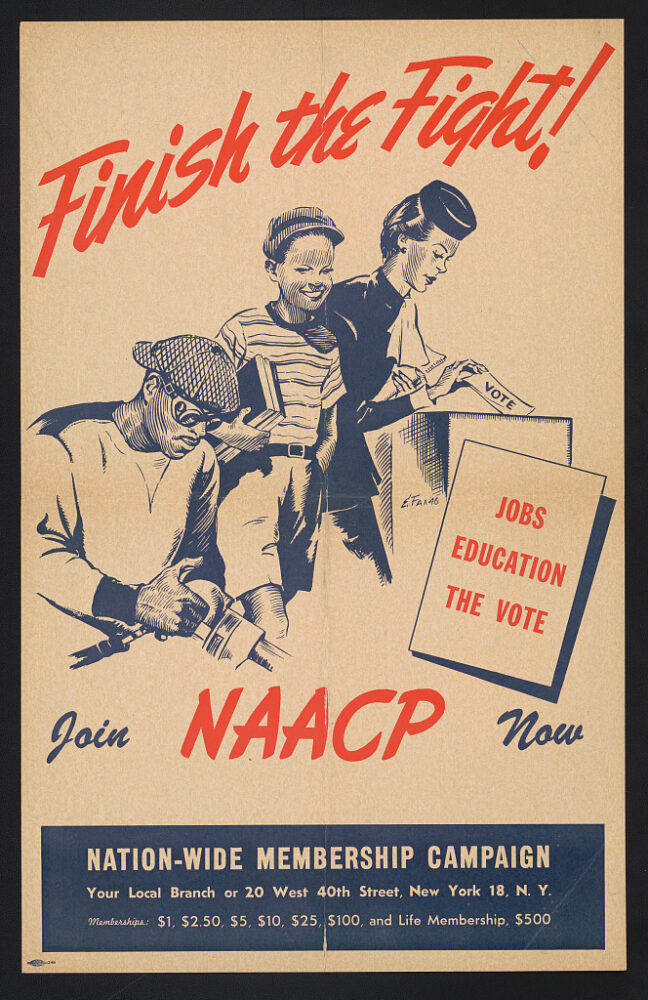Georgia Johnson
Georgia Johnson was a businesswoman and civil rights activist in Alexandria from the 1920s to the 1960s.

Library of Congress Prints and Photographs Division
1946 NAACP promotional poster showing a woman voting, boy carrying books, and man working.
Newspaper editor and businesswoman Georgia M. Johnson participated in the Alexandria civil rights movement from the 1920s to the 1960s. She served as chairperson of the Alexandria branch of the National Association for the Advancement of Colored People (NAACP) in the 1940s. As chair of the legal redress committee of the Alexandria NAACP branch, she worked to identify and combat unfair judicial procedures and discrimination within the U.S. Army. She spent much of her life fighting police brutality and racial discrimination, particularly in the workplace, against Africans Americans.
Little is known about Johnson’s early life. Census records suggest that she was born in Louisiana ca. 1894. In the 1920s she was a public school teacher and principal in the Alexandria area. During the 1930s, she worked as a social worker, the first African American to hold that position in Rapides Parish. In the 1940s she owned a café, The Royal Garden, while also editing and managing a small African American newspaper, the Alexandria Observer. During the 1950s and 1960s she became an independent booking representative for musical groups, and she owned the Holly Oak Cemetery (a segregated graveyard for African Americans).
Johnson became a member of the NAACP in 1920 and held various elected positions in her local branch. She was chair of the legal redress and legislation committee from 1941 to 1944, and chair of the labor committee in the 1960s. The establishment of the Alexandria branch of the NAACP coincided with the outbreak of World War II in 1941. As a result, much of the organization’s work focused on military issues; at the time five military training bases were located in and around Alexandria. Johnson investigated racial attacks on African American soldiers and attempted to get defense jobs for blacks in the community. She also investigated the January 10, 1942, “riot” in Alexandria, following the arrest and brutalization of a black soldier. Twenty-eight African American soldiers died in the riot and 3,000 people were arrested.
Johnson’s impatience with the slow progress of the civil rights movement sometimes put her at odds with national, local, and state leaders of the NAACP. She also suffered harassment by white authorities and was arrested at least three times owing to her affiliation to the NAACP. Her house was burned down in 1939 in mysterious circumstance and, in 1945, Johnson was arrested on a contrived charge of theft; all charges were eventually dropped. Johnson died in her Alexandria home in 1969.
